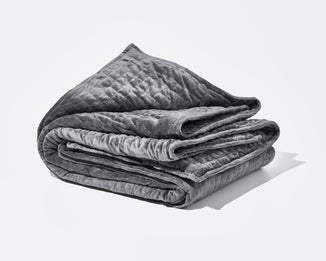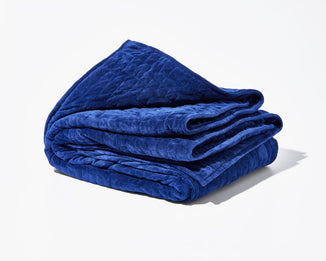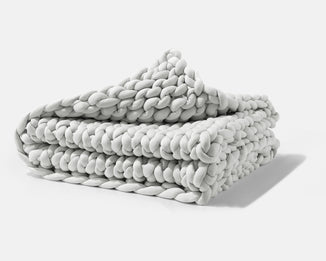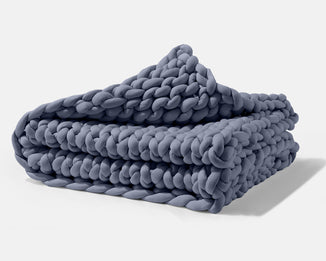
Nov 29, 2021
A Helpful Guide: How to Make Yourself Tired

You know that going to bed at a decent hour is key to waking up feeling refreshed and alert. But what if your bedtime rolls around and you're still not tired? In this simple guide, we explain how going to bed when you're still wide awake can backfire and dish out a few tips on how to make yourself tired in the hours leading up to bedtime.
Why You Shouldn’t Go to Bed Unless You’re Tired
Your ideal bedtime has come and gone, but your brain is still going a million miles a minute. Should you just crawl into your bed and hope for the Sandman to pay you a visit?
As it turns out, that might not be such a good idea. According to experts, making a habit of crawling into bed while you’re still wide awake will make your brain associate your bed with wakefulness rather than sleep. This phenomenon is known as “learned arousal,” and it’s one of the most common reasons why people suffer from insomnia.
The bottom line? Preserve your bed for sleep only.
How to Make Yourself Tired
So, what should you do if you’re not feeling tired at your preferred bedtime? If you want to fall asleep at a decent hour, try one of these tried-and-true tricks for lulling yourself into a state of drowsiness.

1. Dim the Lights
Light plays a central role in your body's natural sleep-wake cycle. Exposing yourself to bright light in the evening suppresses melatonin production (the sleep hormone), while darkness prompts the body to start producing melatonin. To make yourself sleepy, try dimming the lights in your home about an hour or so before bedtime.
Tip: You can also make your sleep environment dark by wearing a weighted sleep mask. These calming masks deliver soothing pressure while creating pitch black darkness. Plus, they’re great for travel!
2. Adjust the Temperature
Can’t get to sleep? You may want to try turning the thermostat down. According to experts, we tend to sleep better in colder temperatures because our core body temperature naturally drops by a few degrees in the evening as part of the sleep initiation process.
3. Ditch the Screens
For many, watching the television or playing on a smartphone provides a much-needed escape after a long day at work. Unfortunately, the blue light exposure from this nightly technology habit could be keeping you awake at night.
Try these tips for minimizing the impact of technology on your sleep:
- Stop using electronic devices one hour before bedtime
- Use nighttime mode on your devices
- Consider wearing blue-light blocking glasses
4. Snack Smarter
Certain foods and beverages contain sleep-promoting compounds that may help you drift off to sleep faster. For instance, tart cherry juice contains melatonin and tryptophan (an essential amino acid that plays a role in melatonin production). Similarly, nuts — including walnuts, almonds and pistachios — are believed to be good for sleep.
5. Clear Your Mind
Does your mind tend to race at night? It's no secret that a busy brain can make it difficult to sleep. Fortunately, there are a few ways to calm your mind and clear your anxious thoughts.
- Write your thoughts down on paper
- Practice mindful meditation
- Take slow, deep breaths
- Replace negative thoughts with positive ones
- Use guided imagery
6. Use a Weighted Blanket
Using a weighted blanket is another effective strategy for quieting your mind and making yourself feel sleepy before bed. Weighted blankets use the power of soothing pressure to relax your nervous system and stimulate the production of hormones that help prime your body for sleep. According to the results of a randomized controlled study, participants who used a weighted blanket for four weeks had significantly reduced insomnia, better sleep quality and reduced symptoms of fatigue, anxiety and depression.
To induce a state of calm before bedtime, cuddle up with a weighted throw blanket while you watch TV or read. Alternatively, you could wear a weighted robe after taking a warm bath.
7. Exercise
Sneaking in a daily workout is an effective way to make yourself feel sleepier at night. In fact, some researchers say that no other daytime activity is more closely associated with sleep than exercise. Not only does exercise temporarily deplete our energy stores, but it also boosts endorphins that help us sleep by making us feel happier and more content.

Lull Yourself to Sleep with a Gravity Weighted Blanket
Figuring out how to make yourself tired can seem like a tall order, especially when you feel wired before bed. But priming your mind and body for bed is key to getting a good night's sleep and reaping the benefits of high-quality snooze.
While there are many ways to wind down before bed, cozying up to a weighted blanket is perhaps one of the simplest ways to make yourself feel sleepy at night. Weighted blankets use the power of deep touch pressure to promote a sense of calm and contentment that helps you fall asleep.
Are you ready to try a weighted blanket and see what all the fuss is about? Check out the entire collection of premium weighted products — including blankets, robes and eye masks — at Gravity Blankets and give yourself the gift of better sleep today.
Your use of this website, its content, and any products obtained through this website is at your own risk. This website, its content, and any products obtained through this website are provided on an “as is” basis, without any warranties of any kind, either express or implied, including warranties of merchantability, infringement of intellectual property, or fitness for any particular purposes. No warranty or representation is made with respect to the completeness, reliability, quality, or accuracy of this website or its content. This website, its content, and any products obtained through this website do not constitute medical treatment and is not a substitute for a medical examination or diagnosis. If you are dealing with a health condition check with your health care provider before using. This website may contain affiliate links that allow us to earn a commission on purchases made through such links. We may accept forms of advertising or sponsorships in connection with this website. There might also be paid topic insertions. We may accept and keep free products, services, and other forms of compensation from others.



